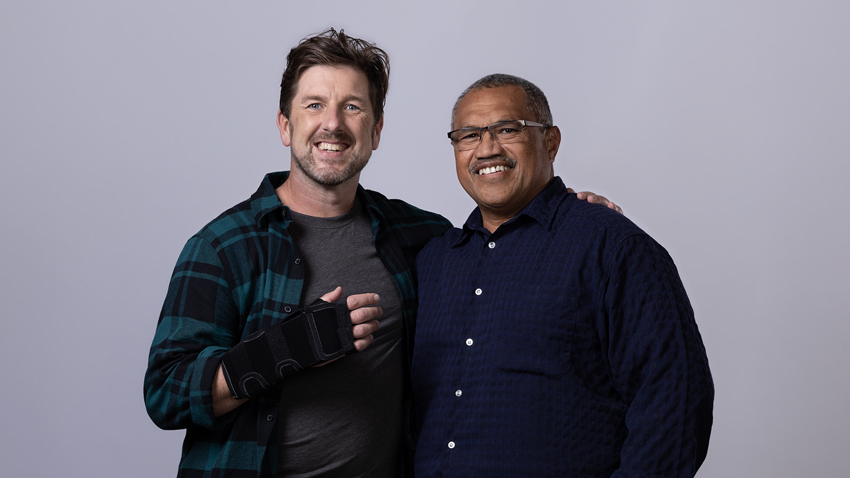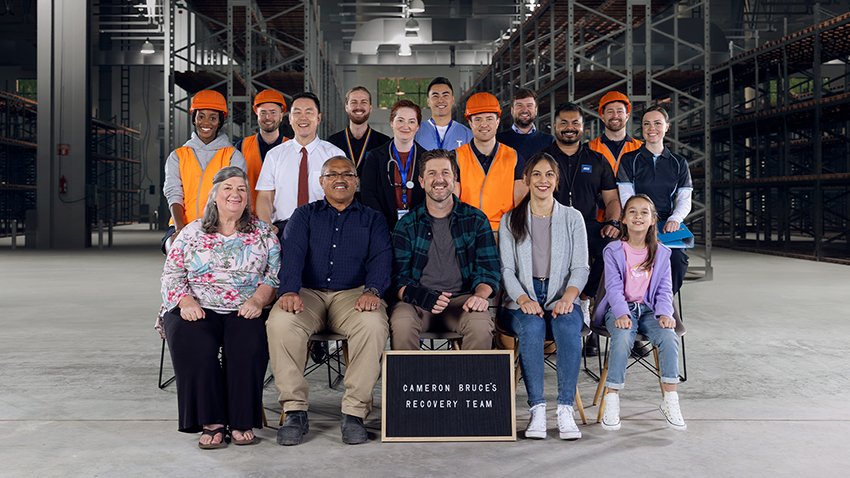Understanding recovery at work as an employer
Recovering at work can be a key part of rehabilitation for an injured employee. As an employer, understand how you can help and who else plays a role in their recovery. Learn about managing payments and options for more serious injury.
On this page
Support your employee to return to work
Your people are vital to the success of your business. When one of them gets injured – either at work, or elsewhere - it can have a significant impact. Not only for the injured person, but on teammates, staff morale and productivity.
Research shows the sooner an injured person gets back to work and everyday life, the better it is for their health, wellbeing, and recovery.
Work can be a key part of most people’s rehabilitation after an injury. Remaining connected to work provides:
- structure and routine
- social connection with workmates
- a sense of purpose.
These all contribute to a good recovery.
Many injured employees are keen to continue working. Those who had a positive recovery at work experience say it helped them:
- return to normality
- increase their strength and mobility
- boost their mental and psychological wellbeing.
Who plays a role in recovery at work
It takes a team effort to help an injured person recover at work. Depending on their injury, support people might include:
- their family, whānau and friends
- you as their employer, along with their team leader or supervisor, teammates, and health and safety representatives
- your employee’s health providers, like their doctor and physiotherapist
- in some cases, a vocational rehabilitation provider, such as an occupational therapist
- an ACC recovery team member.
As an employer, you can play your part by:
- checking in with your injured employee early and regularly
- talking with them about what support they need and what they can do safely
- using MyACC for Business to view your employee’s claim information including restrictions their health provider has outlined on the medical certificate that might impact work tasks.
- tailoring their work to their recovery needs. That might be by adjusting duties, work environment, workload or hours.
Your employee may get help from one of our recovery teams if they need more support because of their injury. They’ll contact both you and your employee, and we’ll work together to support their recovery journey.
Managing payments during your employee’s recovery
Your injured employee can receive income from both you and ACC at the same time. This could mean they get up to 100% of their usual weekly earnings.
As their employer, you pay them for the hours they work. We then reduce the weekly compensation amount paid to your employee, based on the income they receive from you. This is called abatement.
Managing employee payments as part of a gradual return to work plan employer quick guide
Income for your employee while they recover
If your employee has a long-term disability
If an employee has ongoing disability due to an injury, support arrangements can be more complex. They may need time off for treatment and rehabilitation before they can return to work.
If your employee can't return to work
It can be unclear with long-term injuries when your employee will be able to return to their job. If medical opinion suggests your employee will never be able to return to their role, and you can't offer them a permanent alternative job, we'll let you know what the next steps are.
In some cases, we can help them upskill to find a new job.

